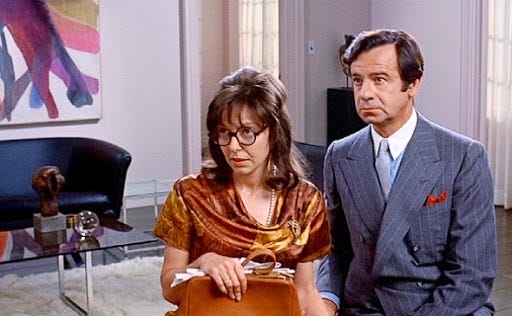Radical.
I am not great, and that’s okay. I wanted to be. I would think most people want to be. I so hoped that I would end up as some sort of prodigal negro, here to save the world, but especially negro-kind, through the power of art. Art doesn’t save shit though. Especially not anymore, if it ever did. And I am certainly not the one to do it. Art is the worst it’s ever been right now and the people love it more than ever. I am old enough now to not get uptight about it THAT much—it’s not like it actually matters anyways. I am trying to make the most of my current reality. I write stuff and I hope it’s being read, but I have no real certainty that they are. I apply to different classes, programs, grants, and jobs and mostly fall flat; perhaps because no one “gets” me, or they find my stuff off-kilter—or maybe I just suck and can’t realize it. Who knows, but like an idiot, I push through… primarily because, what the fuck else is there to do?
Can Hollywood Make Radical Films
Judas And The Black Messiah has a lot going for it. Shaka King’s sophomore outing is very well-made, very well-acted, genre fare; a movie that announces itself as a n all caps “MOVIE.” That’s also its biggest problem.
It has no desire to go beyond the artificial. There’s no interest in capturing Fred Hampton, the person or even much of his life; it doesn’t really fare much better with William O’Neal, the informant who was 17 when he helped the FBI assassinate Hampton. In fact, there are no real people anywhere in JATBM, the film is too enamored with the constraints of the espionage thriller to give much humanity or weight to the Black Panthers and who they were.
In the parlance of Zoolander, the Black Panthers are so hot right now. After decades of CIA and government-engineered propoganda positing them as the black KKK and domestic terrorists, the tide has turned back in their favor. Amidst Black Lives Matter protests and calls for the defunding of police, the writings and work committed by various Panthers, along with leaders like Kwame Ture, Malcolm X, Audre Lorde, bell hooks, and the like have become the vogue. And because many of these people are not here or not in the public sphere to give a complete, complex view of themselves and their beliefs, they are able to be molded and flattened in an effort to prop up a meaningless liberal fantasy of a melting pot, representation, and a democratic electoral ticket. Perhaps the funniest moment of the Black Panthers’ minute of vogue status, is when Beyoncé and her dancers wore Panther-themed jumpsuits during the Super Bowl halftime show a few years back. This was especially ironic, as the Super Bowl is a literal celebration of the military industrial complex as well as a testament to American corporate greed with the added bonus of a gladiator bloodsport, where mostly black men bash their heads in for the benefits of their rich white owners. Hell of a performance though.
This brings us back to Judas. Judas is progress in the sense that it is a movie that paints the Panthers in a positive light and actually indicts J. Edgar Hoover and the FBI. Yet and still, it is a movie that is clearly tip-toeing around the radicalism of the people involved. It’s a movie that mostly ignores the Panthers’ teachings, beyond a couple of fiery “off the pigs” type speeches, a movie that yadda yaddas the Rainbow Coalition and what it was intended to achieve, and a movie that somehow undersells just how insidious the government’s role was in destroying the movement.
Movies aren’t history lessons, and so JATBM didn’t have to do any of this to be considered a great film. If you want a great film about the Panthers, watch Agnes Varda’s 1968 documentary on the subject. This film is not obligated to tell the entire story of the Panthers or promote socialism in any way. The problem though, is without enough context, or characterizations, there’s no reason to care about these characters or marvel at the tragedy of what happened. In fact, the movie falls into a trap that is prevalent in many major studio films now: it is way too plot heavy, completely uninterested in character and dialogue, or setting for that matter. Shaka King has style and certainly there’s a vision being carried out, but it also behaves as his audition tape to get the new Marvel Blade movie or whatever.
Ultimately, it’s fruitless to expect a major studio to make the Fred Hampton or Black Panthers movie that we need. Hollywood, like every other arm on the octopus of white supremacist capitalistic machinery, has too much self-interests to chase and blood on its hands to ever tell the adequate narrative. In the ending, you can feel the insult of adapting Hampton’s life (however partial) for the purposes of entertainment by the same apparatus that murdered him for their own benefit. JATBM is worth watching to be entertained, but for radical art just watch Uptight (1968) instead.
Ten Movies To Watch This Month
A New Leaf (1971) dir. Elaine May
The Manchurian Candidate (1962) dir. John Frankenheimer
Postcards From The Edge (1990) dir. Mike Nichols
Beau Travail (1999) dir. Claire Denis
The Shining (1980) dir. Stanley Kubrick
Compensation (1999) dir. Zeinabu Irene Davis
After Hours (1985) dir. Martin Scorsese
Crooklyn (1994) dir. Spike Lee
Atlantics (2019) dir. Mati Diop
The Killing Floor (1984) dir. Bill Duke




